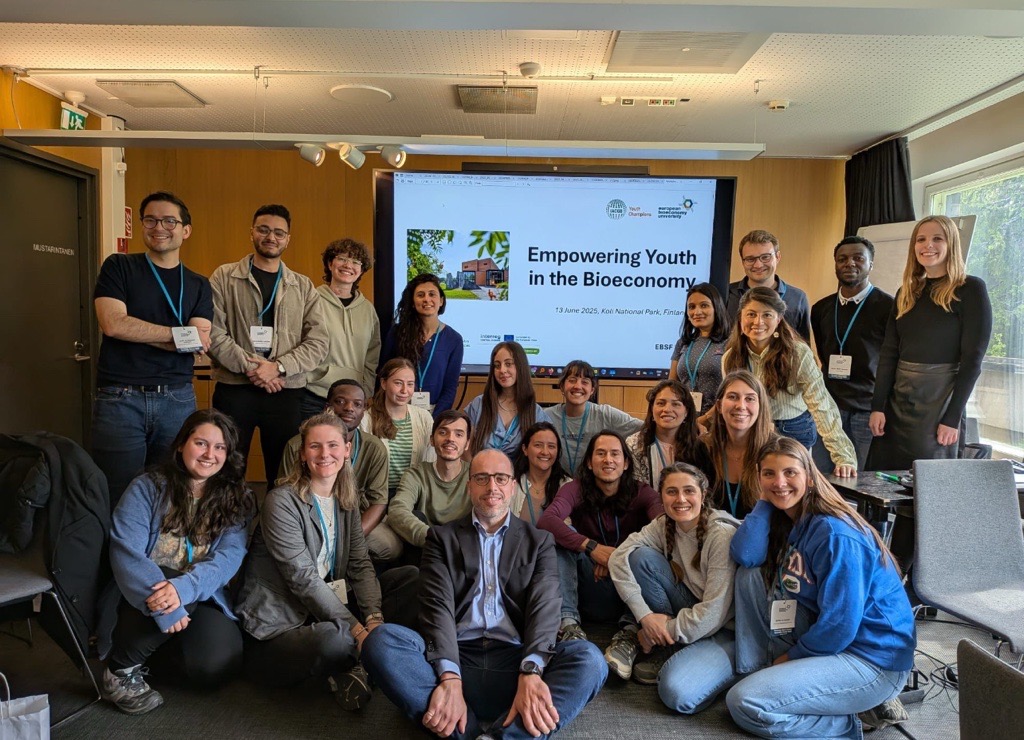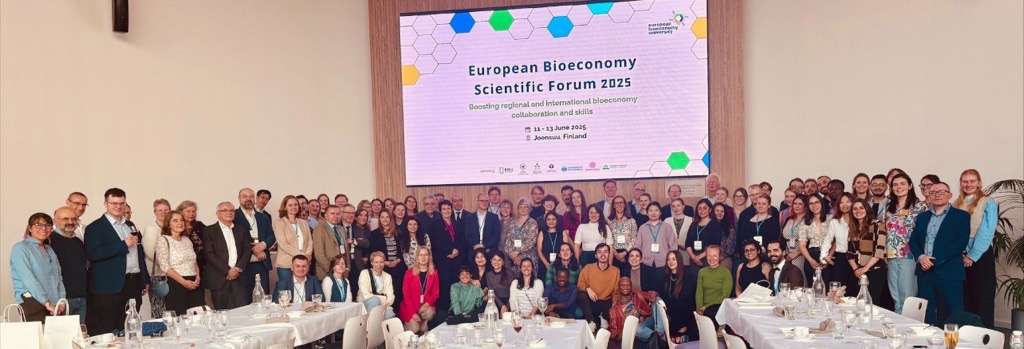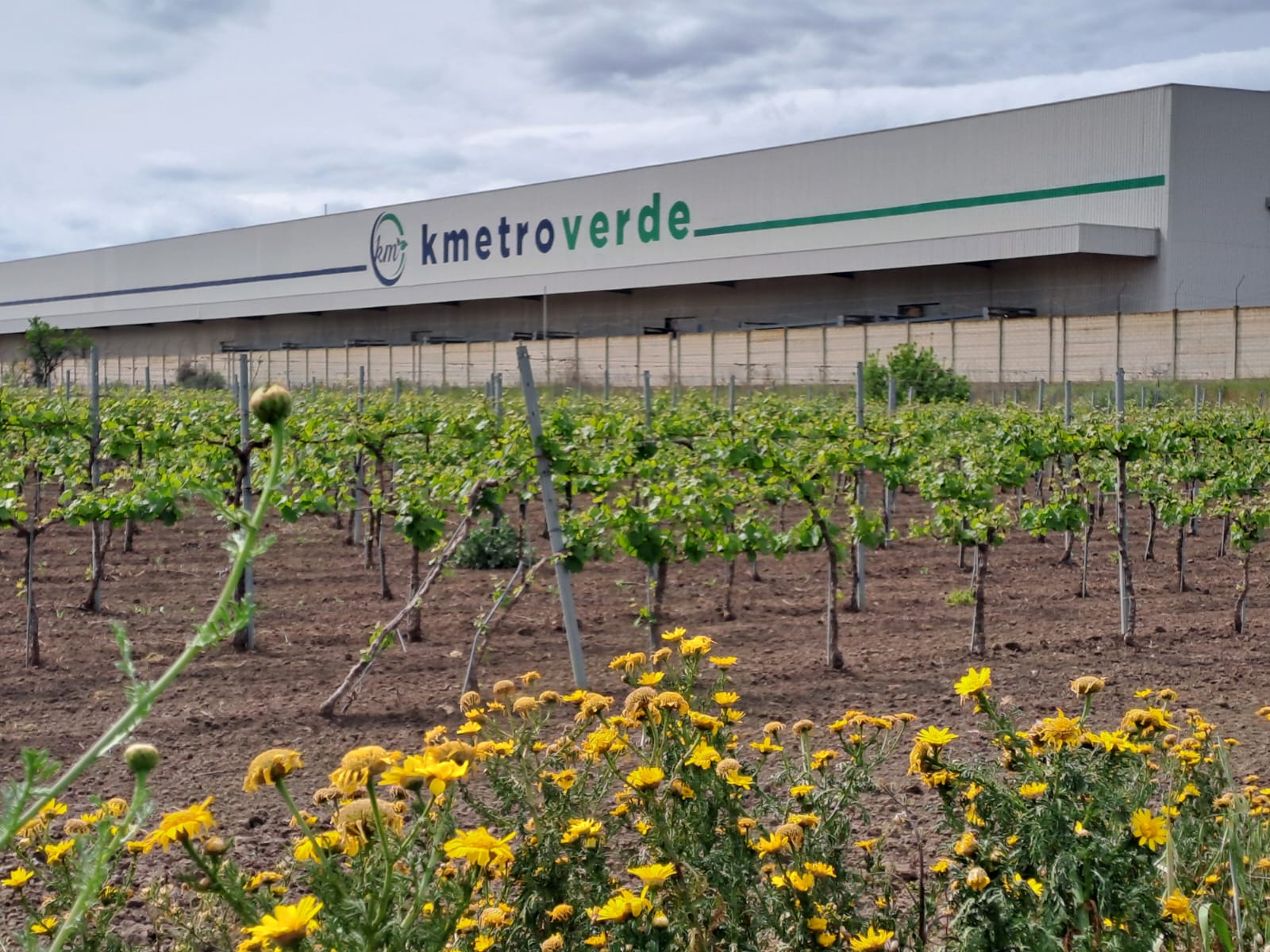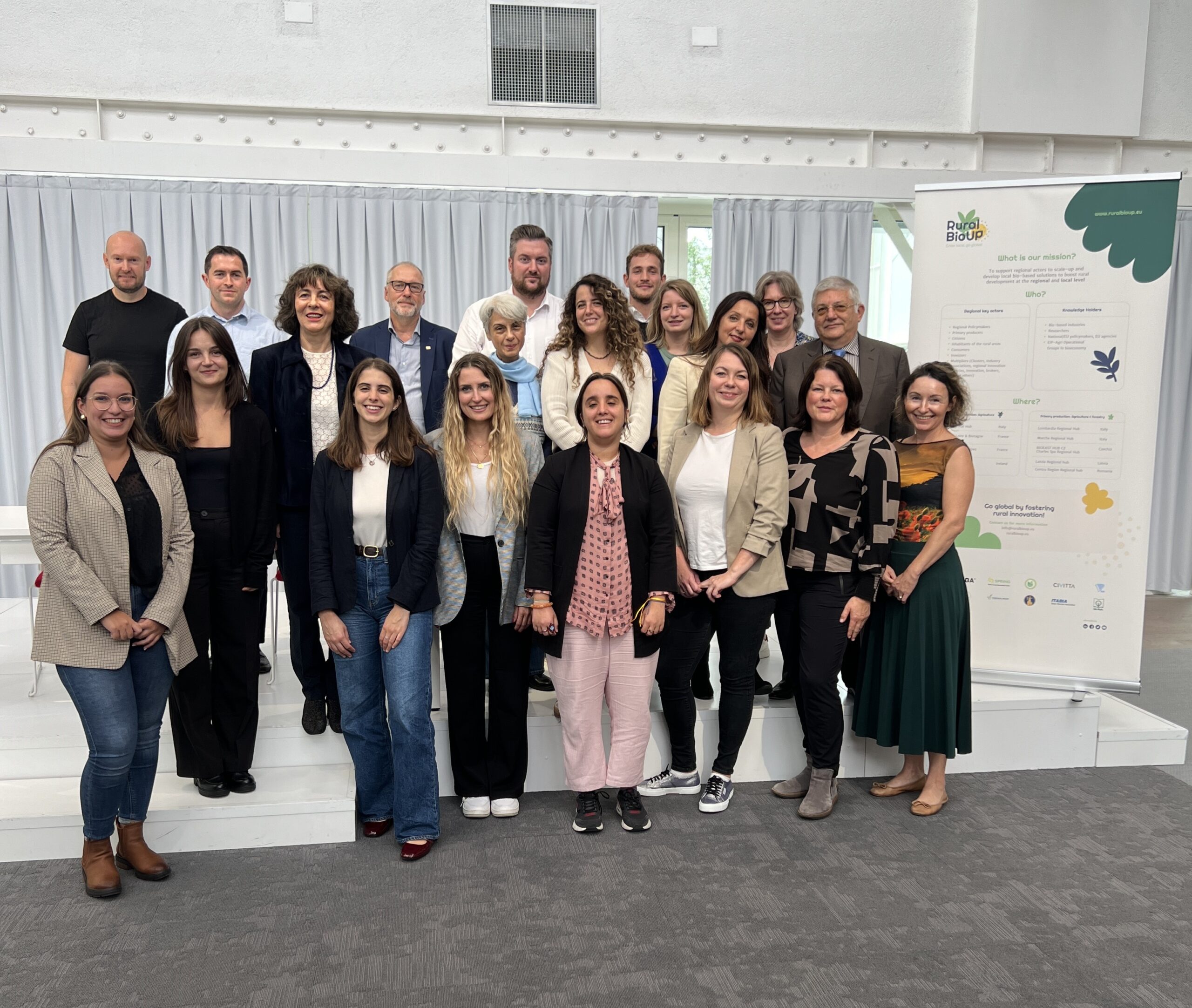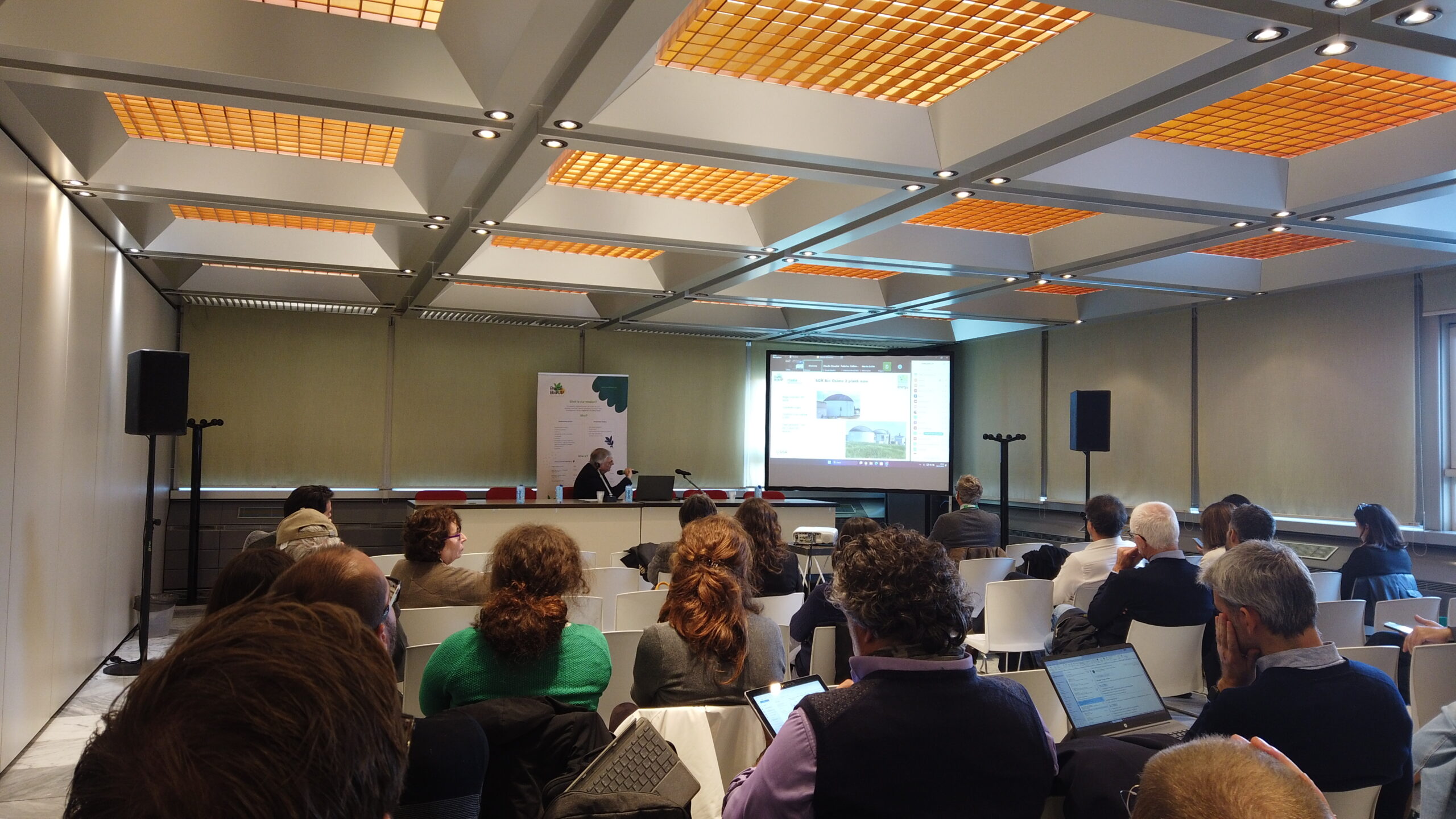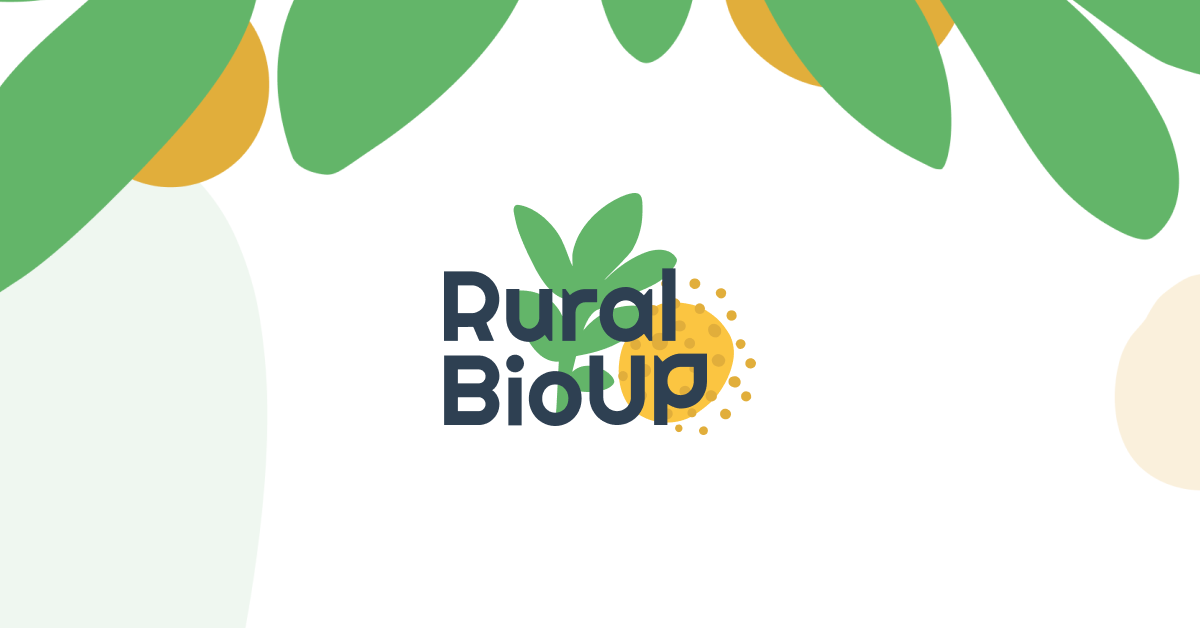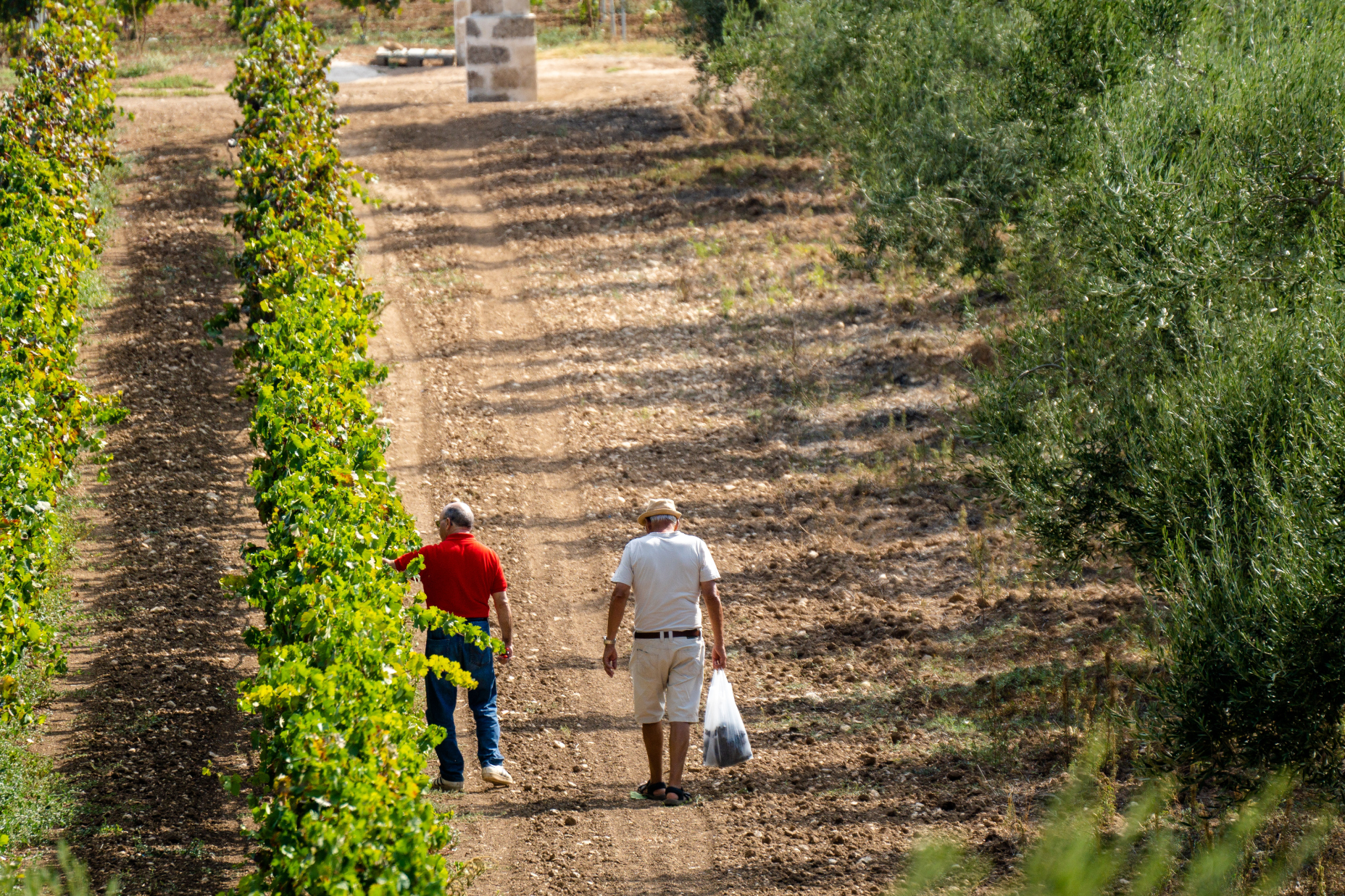Bridging Regional Bioeconomy Gaps: Multi-Actor Approach and Cross-European Collaboration in Circular Economy Strategies and Actions
Publication date 11 Jul 2025
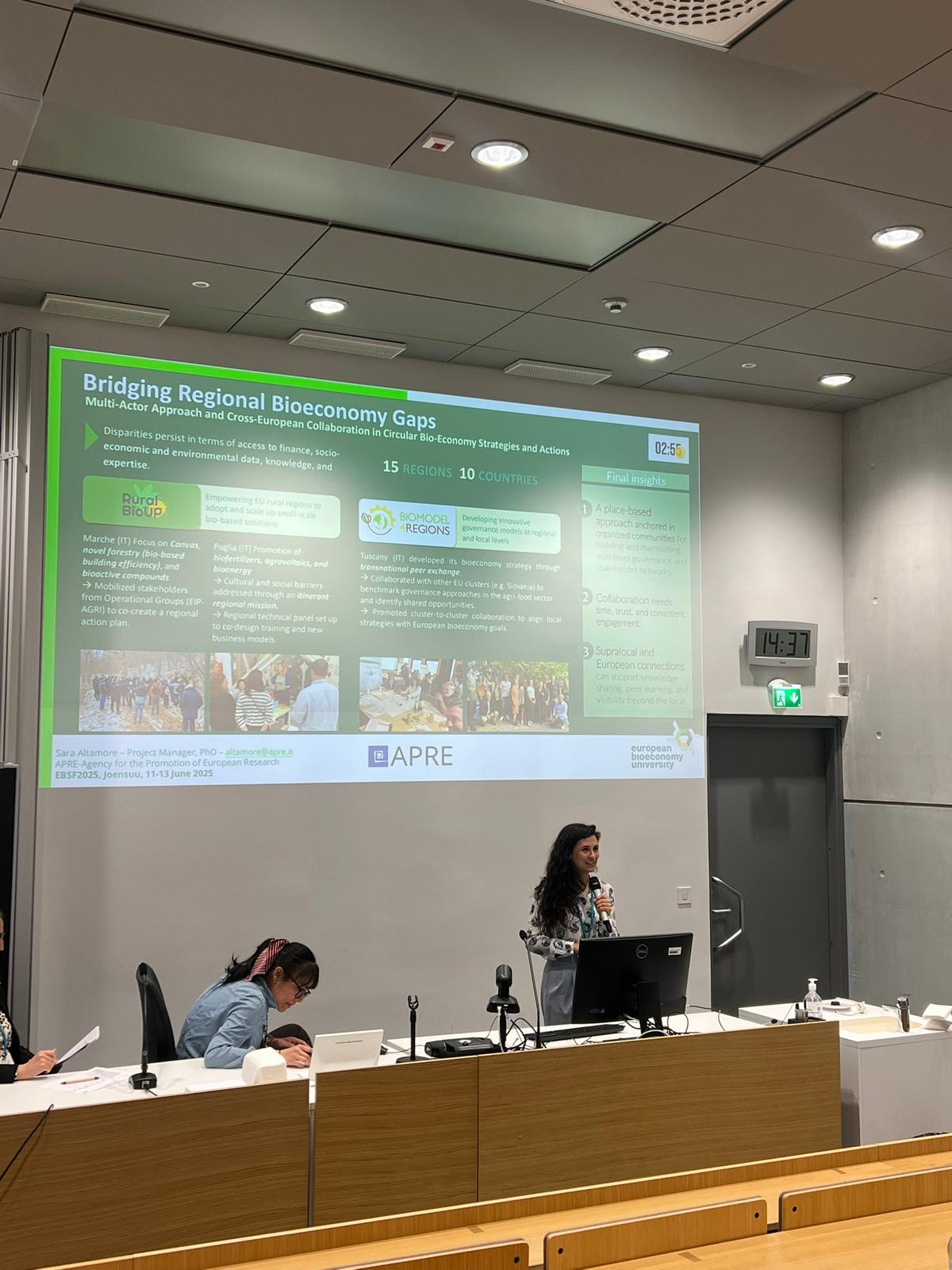

Presented at the European Bioeconomy Scientific Forum (EBSF) 2025 in Joensuu (11–13 June), this contribution explored how multi-actor collaboration and cross-European exchange can help bridge regional bioeconomy gaps.
The presentation drew on key outcomes from two Horizon Europe projects—RuralBioUp and BIOMODEL4REGIONS—involving 15 regions across 10 countries. While BIOMODEL4REGIONS developed structured Regional Bio-Based Economy Strategy Blueprints, RuralBioUp fostered local engagement through regional Hubs for developing bottom-up Action Plans. Both projects highlighted how the regional level enables collaboration among public authorities, industry, researchers, farmers, and civil society, ensuring that bioeconomy strategies reflect territorial needs.
In particular, two Italian case studies were presented from RuralBioUp. In the Marche region, a participatory process involving EIP-AGRI Operational Groups focused on forestry innovation for building efficiency and bioactive compounds. This experience underscored the importance of building long-term trust and sustained stakeholder commitment to shape effective regional action plans.
In Puglia region, the promotion of biofertilizers, agrivoltaics, and bioenergy faced cultural and social resistance. The region responded with an itinerant mission to reach remote areas and co-design solutions with local communities. This approach proved key to creating a multilevel governance model rooted in local knowledge and participation.
These cases illustrate that bridging bioeconomy gaps requires:
-Place-based approaches, grounded in organised communities;
-Trust-based, long-term collaboration among diverse stakeholders;
-European-level cooperation to support peer learning, visibility, and policy alignment.
Such principles are essential for building inclusive, resilient, and sustainable bioeconomy ecosystems across Europe.
Author – Sara Altamore – APRE (Agenzia per la Promozione della Ricerca Europea)
